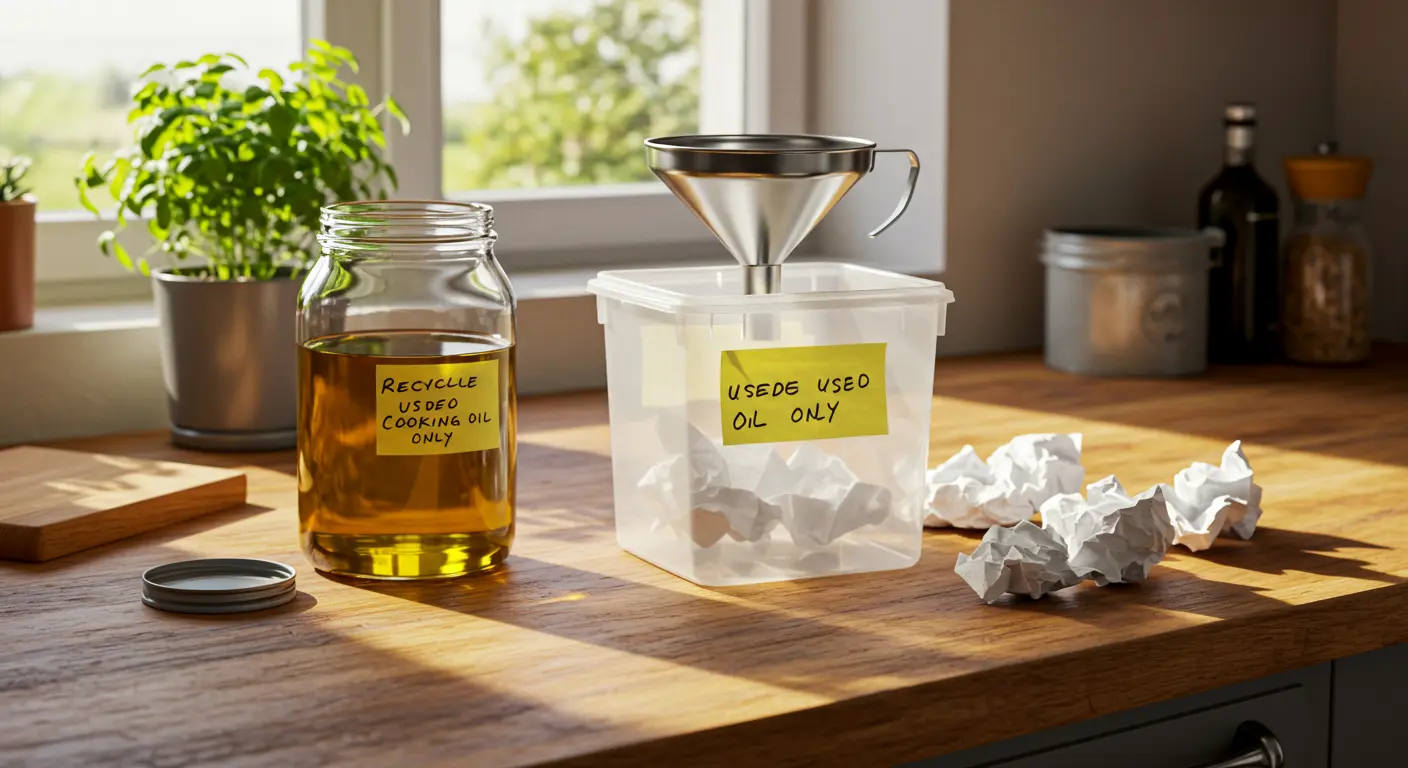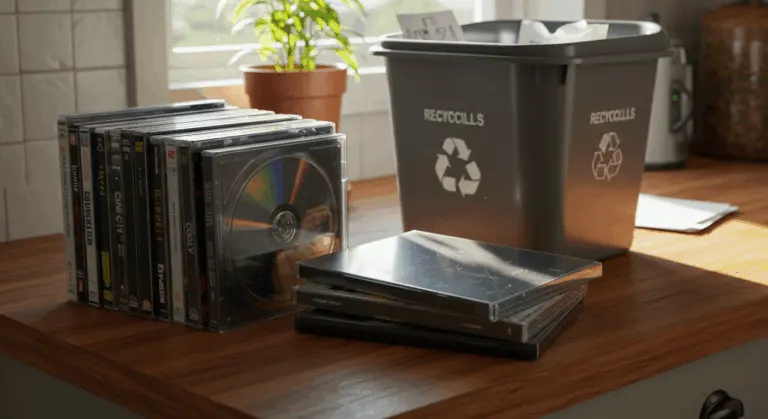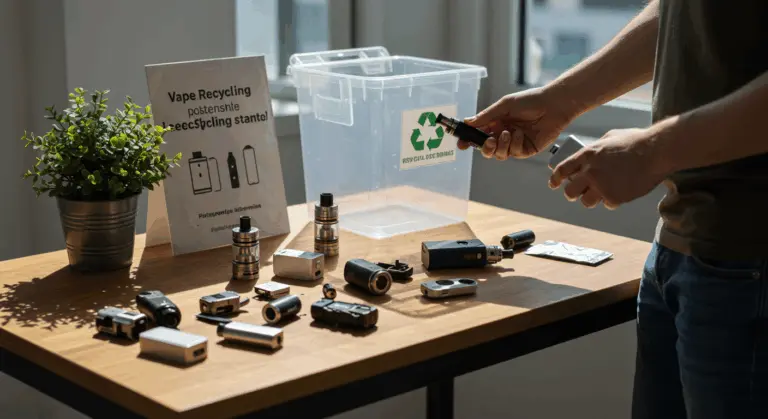Why Recycling Cooking Oil is Important
Proper disposal of cooking oil transcends mere good habits—it’s absolutely essential for environmental protection and infrastructure integrity. When cooking oil goes down drains, it solidifies into stubborn blockages that affect both residential plumbing and municipal sewage systems. These obstructions often cause expensive repairs, sewage backups, and serious environmental harm as untreated waste infiltrates our waterways.
The contamination doesn’t stop there. Improperly disposed cooking oil contaminates water sources, harming aquatic ecosystems. Here’s a striking example: a single gallon of oil can contaminate up to one million gallons of water.
Recycling transforms discarded cooking oil into valuable biodiesel fuel. This renewable fuel burns much cleaner than petroleum diesel, reducing greenhouse gas emissions by up to 86%. When you participate in cooking oil recycling programs, you’re supporting resource conservation and sustainable energy production.
For businesses—particularly restaurants and food service establishments—proper cooking oil disposal goes beyond environmental responsibility. It’s often a legal imperative. Many municipalities require grease interceptor installation and maintenance to prevent oil from entering sewage systems. Regulatory compliance protects businesses from heavy fines while safeguarding community infrastructure.
This practice converts waste into valuable resources, building sustainable communities while diminishing our reliance on fossil fuels.
How to Find Cooking Oil Recycling Locations
-
Online Locators: Use online recycling tools to find local cooking oil collection points by entering your zip code or address.
-
Municipal Centers: Check your local government’s waste management website to see if nearby recycling centers accept used cooking oil.
-
Community Programs: Ask your property management or homeowners association if they provide designated collection containers for residents.
-
Seasonal Drop-offs: Look for temporary collection sites during holidays like Thanksgiving, when oil usage is high.
-
Start Your Own: If no local options exist, contact your municipal waste department about establishing a community collection point.
Local Services for Used Cooking Oil Collection
-
Specialized Collection Companies: Search for “used cooking oil collection” to find local businesses. They often serve commercial clients, but some have residential options. Note that payment is typically only for bulk quantities.
-
Residential Pickup Services: Some metropolitan areas have services that collect oil from your home, often for a small fee.
-
Local Biodiesel Producers: Contact small-scale producers who may accept donations and sometimes provide collection containers.
-
Agricultural Cooperatives: In rural areas, check with local farming organizations, as they may collect oil to produce biodiesel for farm equipment.
What Happens to Cooking Oil After Collection?
Once collected, used cooking oil is carefully filtered to eliminate food particles, water, and various impurities.
The oil then goes through advanced purification using centrifugation, heating, and specialized chemical treatments. These methods remove lingering contaminants, neutralize acids, and eliminate odors.
The main transformation happens through transesterification—a chemical reaction where purified cooking oil’s triglycerides (fat molecules) combine with alcohol (typically methanol) in the presence of a catalyst. This process converts the oil into fatty acid methyl esters (FAME)—the technical designation for biodiesel—while producing glycerin as a valuable byproduct.
The biodiesel produced is a renewable, clean-burning alternative to petroleum diesel. When powering vehicles or industrial equipment, it produces far fewer harmful emissions than conventional diesel. Even the glycerin byproduct finds purpose—manufacturers repurpose it for soaps, cosmetics, and diverse industrial applications.
Some operations take different approaches, converting the oil into animal feed supplements or specialized industrial lubricants.
Best Practices for Cooking Oil Disposal
If recycling is not an option, follow these best practices for safe disposal:
-
Seal and Trash: Pour cooled oil into a sealable container (e.g., a metal can or plastic carton), secure the lid, and place it in your regular household trash.
-
Freeze Small Amounts: For easier handling, pour small amounts of oil into a sealed plastic bag, freeze it solid, and then discard it.
-
Use a Dedicated Bin: If you cook with oil frequently, keep a dedicated, labeled container in your kitchen to collect it over time for a single disposal.
FAQs About Cooking Oil Recycling
Cooking oil recycling often raises questions about processes, benefits, and practical logistics. Here are answers to the most frequently asked questions about cooking oil recycling:
Why is recycling cooking oil important?
Cooking oil recycling is environmentally important because improper disposal damages infrastructure and ecosystems alike. Oil poured down drains solidifies into serious blockages, triggering expensive repairs and environmental problems. Recycling prevents these disasters while fueling biodiesel production—a renewable energy source.
What types of cooking oil can be recycled?
Most plant-based oils—vegetable, canola, olive—and animal fats like bacon grease qualify for recycling. However, always verify specific guidelines with your local facility, as some impose restrictions on certain oil types or mixtures.
How is recycled cooking oil used?
After collection and processing, recycled cooking oil primarily becomes biodiesel through transesterification—chemical processing. This sustainable fuel powers vehicles, heats homes, and generates electricity while creating much fewer carbon emissions than fossil fuels. Some recycled oil also serves industrial applications or becomes animal feed ingredients.
Do I need to filter my cooking oil before recycling?
You don’t need to filter extensively. While removing large food scraps is helpful, recycling facilities use industrial equipment to handle minor residues. For optimal results, simply ensure your oil remains free from significant water contamination or other major contaminants.
How much environmental impact does cook oil recycling have?
The environmental benefits are substantial. Cooking oil recycling significantly reduces carbon emissions by providing petroleum alternatives. One gallon of recycled cooking oil yields nearly one gallon of biodiesel, generating up to 86% fewer greenhouse gases than conventional diesel. Additionally, proper recycling prevents water pollution and reduces strain on wastewater treatment facilities.
Can I get paid for my used cooking oil?
While individual households rarely generate sufficient volume for profitable sales, restaurants and commercial kitchens often can. Multiple companies purchase bulk used cooking oil from businesses, providing financial incentives for proper disposal in commercial environments.




